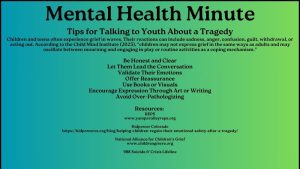Weekly Wellness: Passing through perimenopause
UCHealth

From celebrity talk shows to social feeds, it may feel like everyone is talking about perimenopause and menopause these days.
“It’s the hot topic – there are a lot of changes occurring with treatment,” said Dr. Laurie LeBleu Vaszily, an obstetrician and gynecologist with UCHealth Women’s Care Clinics in Steamboat Springs and Craig.
Some of those changes relate to menopause hormone therapy (MHT), also known as hormone replacement therapy. While hormones have been prescribed since the early 1900s to address symptoms in menopause, a large study in 2002 by the Women’s Health Initiative connected MHT with increased risk of breast cancer, stroke and dementia. As a result, “everyone stopped cold turkey within that year,” LeBleu Vaszily said.
But flaws with the study have since been revealed.
“They reanalyzed the data and found the big blanket statement that hormones cause cancer is not true,” LeBleu Vaszily said. “Now, we’re trying to re-educate people and let them know hormones are safe, but that everybody needs to have an individual plan based on their medical history, family history and goals.”
Perimenopause basics
Perimenopause takes place in the last five to ten years before menopause, often starting in the mid-40s. It can result in a wide range of symptoms, such as hot flashes, night sweats, mood changes, sleep disturbances, anxiety, changes in attentiveness and short-term memory, decreased libido and even heart palpitations.
“It’s going to happen – it’s just a matter of when,” LeBleu Vaszily said.
Levels of hormones such as estrogen, follicle-stimulating hormone (FSH), testosterone and progesterone shift during this time, until menstruation stops altogether: after one year without a period, a woman has entered menopause.
While hormone levels can be tested, they fluctuate greatly, so treatment is often based on symptoms.
Menopause hormone therapy
Estrogen replacement therapy has been shown to help with hot flashes, night sweats, sleep issues, and hair, skin and nail dryness. For women who have a uterus, it’s important to also take progesterone to help protect against endometrial cancer; bioidentical progesterone may help with sleep and may decrease anxiety.
Some patients also find benefits from testosterone therapy, such as improved libido, decreased fatigue and increase in lean muscle mass.
When trying MHT, LeBleu Vaszily takes a calculated approach, introducing one thing at a time. “It often involves a little trial and error,” LeBleu Vaszily said.
Don’t be surprised if your treatment needs to change over time.
“Hormone levels are constantly changing during perimenopause, which means that what helps for six months may not be as successful after that,” LeBleu Vaszily said. “I always encourage patients to keep an open dialogue with us.”
LeBleu Vaszily also encourages patients to log symptoms in a journal, and to remember that since symptoms can be so varied, there’s a chance something else is at play.
“These symptoms are not all isolated to hormone issues,” LeBleu Vaszily said. “If you start hormones and no symptoms improve, you need to look outside of that. This isn’t the magic pill that fixes everything.”
Keep in mind that the mid-forties to early-fifties is often a challenging time of life for women as they manage careers, growing children, aging parents and financial strains.
“Sometimes it’s life and sometimes it’s hormones and sometimes it’s a little of both,” LeBleu Vaszily said.
Lifestyle changes
Aging results in lean muscle wasting, which contributes to a decrease in metabolism. LeBleu Vaszily recommends increasing protein consumption to 80 to 100 grams a day and incorporating both weightlifting and cardiovascular exercise into your exercise routine.
Supplements such as vitamin D and iron may be beneficial, as aging can make it harder to process and absorb nutrients. Since high-fat foods and alcohol aren’t metabolized as easily, it may be helpful to limit those.
“People often notice worse symptoms from very small amounts of alcohol,” LeBleu Vaszily said. “Lots of women find that if they abstain from drinking, they feel better.”
Keep in mind that since perimenopause is such a hot topic, it’s easy to stumble on misinformation. “This is a very evolving field, and there’s a lot out there, especially with social media,” LeBleu Vaszily said.
“We’re here to help, so reach out to voice your concerns. Hormones are safe, but because everyone responds differently, it’s important to keep checking in.”
Susan Cunningham writes for UCHealth Yampa Valley Medical Center. She can be reached at cunninghamsbc@gmail.com.

Support Local Journalism

Support Local Journalism
Readers around Steamboat and Routt County make the Steamboat Pilot & Today’s work possible. Your financial contribution supports our efforts to deliver quality, locally relevant journalism.
Now more than ever, your support is critical to help us keep our community informed about the evolving coronavirus pandemic and the impact it is having locally. Every contribution, however large or small, will make a difference.
Each donation will be used exclusively for the development and creation of increased news coverage.









